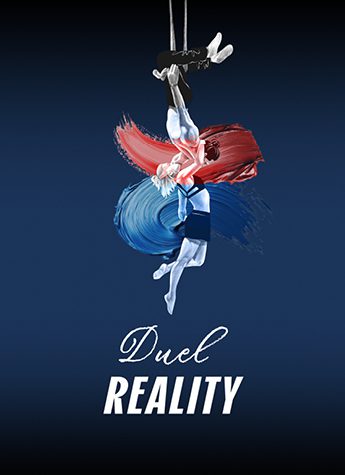- Shows &
Tickets - Classes &
Camps-
-
-
-
Interested in after-school activities for your kids? Explore After School Programs
- After School Programs
-
-
-
- Schools &
Educators-
-
- Schools & Educators
Partner with the Alliance Theatre Institute for professional learning for educators and arts-integrated or theater-based instruction for students.
-
Unique Programs
We offer unique programs that use the power of the arts to inspire students, develop skills, and create positive change in schools and communities.
- Poetry Out Loud: Georgia
- JumpStart Theatre
-
-
-
-
Tickets for Teachers is a free ticket program for educators at Alliance Theatre productions. View Program Details
- Tickets for Teachers
-
-
-
- Artists &
Community-
-
- Artists & Community
Learn more about our playwriting programs, partnerships with community organizations, and resources for artists.
-
An exploration of theater and the people who make it happen.
-
Check here for all major announcements from the theater.
-
-
- Impact &
Support-
-
- Impact & Support
Your support brings stories to life, funds community programs, and ensures more people have access to powerful theater experiences.
-
Name a Seat in the Goizueta Stage
Put your unique handprint on better tomorrows for Atlanta's young audiences.
-
-



The moment actor, writer, and producer Tituss Burgess saw The Preacher’s Wife as a teenager, he knew it would make a great musical. “No joke,” he said, “I leaned over and told my mom, ‘Oh, this is so good; someone should make this into a musical.’”
The Athens, GA native had gone to see the film when it opened in movie theaters. Seeing the 1996 film was the first time he’d seen such healthy depictions of Black families and how they dealt with issues. It struck him “on so many levels.”
“I just remember getting goosebumps,” said Burgess. “There was something magical about the movie outside of the movie’s magic — outside the magic that’s in the movie. It stayed with me for a very, very long time.”
Azie Dungey, an actress, writer, and producer, has worked on Netflix hits such as Unbreakable Kimmy Schmidt and Girls5Eva. Dungey, who wrote the book for the musical production, describes the original film as charming.
“It’s so gorgeous, it’s so loving, it’s so fun,” she said. “It’s funny and timeless and a breath of fresh air.” Dungey has also read the book that inspired the movie, The Bishop’s Wife.
Dungey was attracted to the production by Burgess, also known for his acting work in Unbreakable Kimmy Schmidt. Burgess is also known for his work on Broadway, which includes The Little Mermaid and, more recently, his turn onstage as Harold Zidler in Moulin Rouge!.
Burgess has been working on the music for the musical for years. By the time Dungey joined the project, a lot of the music was complete. That also meant, Dungey said, that she had the unique challenge of meeting the depth of the music when she began writing the book.
“Music is transcendent,” she said. “Music in general, what it has meant to Black people, how we have expressed love, lack of love, complications with love through music… There is depth in the music. There is depth in the experiences of the characters, and that depth is being pulled out in these songs.”
Like the blockbuster film, the musical version of The Preacher’s Wife introduces us to Henry and his wife Julia. Henry serves as pastor of a church in Harlem and faces the challenges of ministry in addition to the gentrification of the neighborhood. He asks God for help, and, as a result, the couple receives a visit from an angel named Dudley. Little do they know, Dudley is there to help with much more than the church.
In adapting the story for the stage, Dungey and Burgess came to a realization about the story and Julia’s involvement in it.
“As a woman, it occurred to me that even though [the movies and book are] called The…Wife, none of them really centered on the woman in a way that, I thought, was kind of indicative of the title The Preacher’s Wife,” he said. “The title is about her relationship, but it’s not about her as a person.”

The revelation made Dungey consider how her own identity works with and against the titles placed upon her and others, like her own mother who, after marrying Dungey’s stepfather, became a preacher’s wife.
Dungey’s first lines of poetry were printed in the bulletin of her church when she was a kid. She also recited her first poem — a poem her grandmother wrote — in her childhood family church. Returning to those roots after so many years is personal. She accredits many of the lessons she learned to the church, such as “how to command and be confident,” but she acknowledges that there’s a bigger story at play.
“I watched my mom kind of fade away into the title,” Dungey remembered. “So that was a part of my thought process. I think we’re deconstructing a lot of that stuff around what it is to be a woman and to be a woman on your own terms. It was a lot of digging. Digging into myself, digging into the women — the Black women — I know, especially my mother.”
At its best, said Burgess, the movie also misrepresents the women he knows.
“The women that I work with are strong — they have agency, and they don’t need men to do anything,” he said. “The hardest hurdle to get over was quite literally the title. The preacher’s wife is possessive, and the movie acts like it’s just about Henry.”
Centering Julia just makes the most sense. So, that’s what they have done.
In unearthing Julia’s story, they have also exposed parts of themselves as well.
“The Preacher’s Wife is probably the fullest artistic expression I have ever had — ever — as a human being,” he said. “In a world where people of color in general are often not seen, it doesn’t go lost on me that I have an opportunity to be on full display in a way that reveals every part of me.”
Being on stage as an actor, he emphasizes, doesn’t create the opportunity that this production has given to him.
“It doesn’t get more honest than writing,” he added. “I can hide behind a character but, y’know, you’re in my head when you hear this. You are literally… you are privy to being inside my psyche. That’s exciting and scary and liberating. I’m excited.”
And even though the original story was set in a church, and this production is connected to the church, their hope is that audiences will see the universality of the story.
“[Tituss] always reminds me that it’s not just for Black people. It’s not just for the people who are connected to the Black church at all,” said Dungey. “The bigger story, for me, is as a woman — the lessons we have been taught that restrict our identity, restrict our taking up space, restrict even how we see ourselves and how you can be your biggest self and still be loved and to show up as all of yourself.”
This story, said Burgess, is about pulling yourself up by the bootstraps and taking responsibility for how you perceive the world. It’s not about looking at the world as though it’s happening to you, but rather that you are in it and are a participant.
“Any human that is breathing and hoping and doubting and trying to work through the intersection of faith versus the reality that is in front of them will find a way in this play and, I think, find healing,” said Burgess. “If you look back on your life at some of your moments of uncertainty, [you will remember that] you were able to triumph on some level, and there should never be any doubt that you can do it again. If we’ve done our jobs right, you realize that you can do anything. You can really overcome any set of circumstances and you walk away with a sense of community [and] feeling lighter and with a bit more joy.”
Watching Julia change her circumstances even though the circumstances haven’t changed yet is “pretty powerful,” he said.
“I admire her, and I’ve learned a lot from her. She allowed me to be human and sort of let me know that it’s okay to not be okay — but you can’t stay there.”
Learn more about The Preacher’s Wife.












